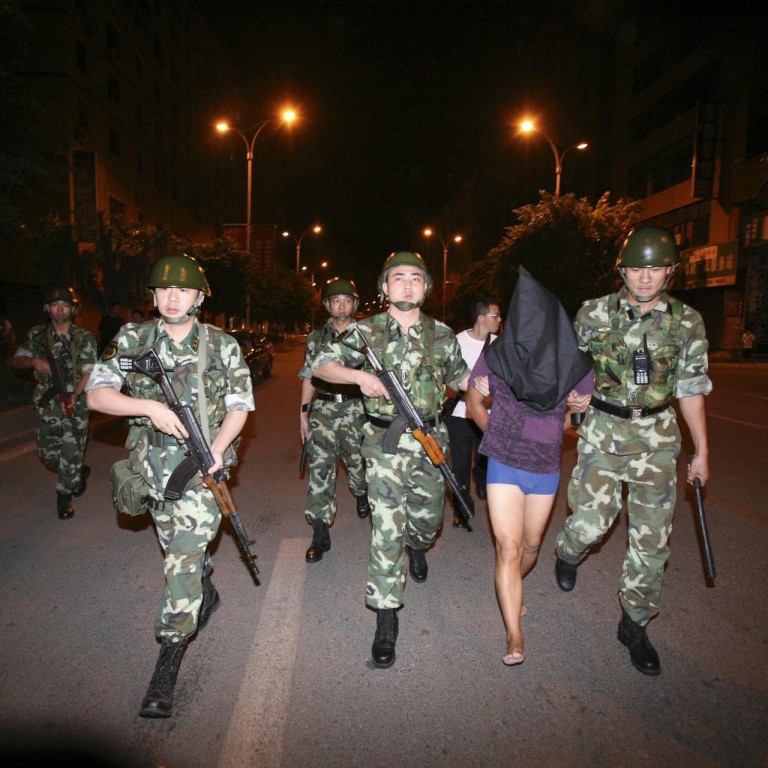
Little sympathy in Chongqing for partners in crime
The face-off between Bo Xilai and his former right-hand man provided a measure of satisfaction to some of those who suffered under their abusive "strike hard" campaign against crime in Chongqing . But others dismissed the event as just another act in a staged trial.
The face-off between Bo Xilai and his former right-hand man provided a measure of satisfaction to some of those who suffered under their abusive "strike hard" campaign against crime in Chongqing . But others dismissed the event as just another act in a staged trial.

Describing their violent confrontation on January 29, 2012, Wang told the court on Saturday: "I'm not just a witness: I'm a victim of Bo Xilai's case."
But sympathy may be hard to find in Chongqing. One of those who suffered under the strike hard campaign is a former chief of a district-level police bureau, who calls Bo China's biggest gangster and Wang his hit man.
"How can he possibly be a victim given the large number of people he has harmed?" asked the former police chief, who declined to be named.
Several Chongqing officials and ranking police officers went drinking to celebrate on Saturday night after learning what transpired in the Jinan court.
Another police officer said many of his friends were jubilant because the ailing Wang was now in a wheelchair.
Wang won huge publicity for spearheading Bo's anti-crime campaign, which started in 2009 and led to the arrests of nearly 6,000 people, including billionaire businessmen, government advisers, crime bosses and senior police officers. But Bo was eventually criticised for neglecting due process and using torture to extract confessions.
Huang Chengcheng , who was sent to a labour camp during Bo's tenure and has been closely following the trial, said the two appeared to have lied during cross-examination to advance their own agendas.
"Wang was just following the script because he has to co-operate with authorities to have his sentence reduced," Huang said. "As for Bo, he's a natural-born actor doing his swan-song to polish his public image as a tragic hero."
Wang was sentenced to 15 years in prison last September for graft, among other crimes.
Huang was sentenced to two years of reform through labour in 2011 after he posted a microblog entry that referenced the "Jasmine Revolution", a pro-democracy movement inspired by the Tunisian revolution and which gained limited traction on the mainland in 2011.
Huang also scoffed at Wang's portrayal of himself as a victim.
"He was part of the system which he manipulated for his own favour, and the punishment he received was brought upon himself."
Another family to have felt the effects of the campaign is that of Li Qiang. Once one of Chongqing's most successful businessmen, Li is serving a 20-year prison term for gang-related offences. While in detention before his trial he was forced to sit in a straight-backed chair specifically built too small for him for 76 days.
His daughter, Li Jun, questioned whether the publicised account of the session was complete as it seemed too short to match the one hour and 40 minutes reported by authorities.
